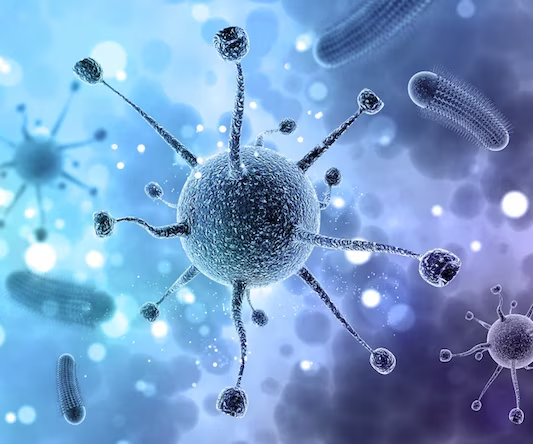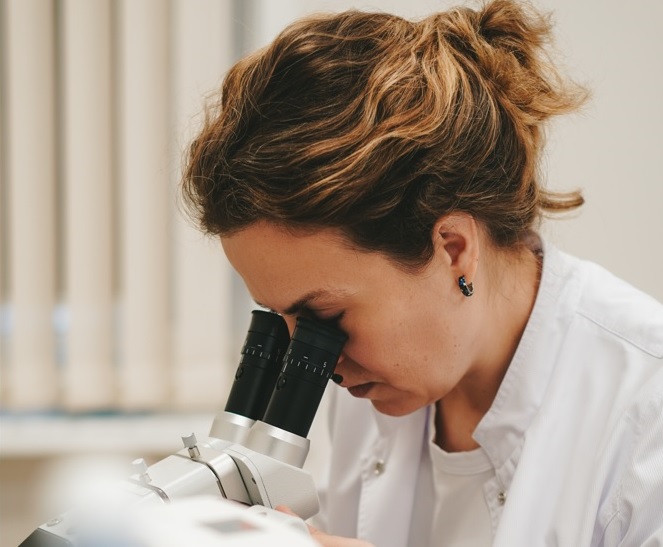Inflammatory diseases of the urinary system

specialists

equipment

treatment
Classification
Localization
The upper (including the two kidneys and the ureter) and lower (including the bladder, urethra) sections may be affected. The latter option is diagnosed more often.
Features of the flow
There are two types of pathology. Uncomplicated (there is no disruption in the full outflow of urine, there are also no concomitant pathologies and changes in the urinary tract) or complicated. The latter is provoked by any infections that enter the genitourinary system.
In women, pathology can be provoked by two reasons, the presence of atypical microorganisms or a disorder that can be anatomical or functional. This provokes a delay in the outflow of urine, a decrease in immunity.

Types of pathogens
Urogenital infections are conventionally divided into two blocks, which have characteristic differences.
Specific infections are caused by:
- Gonococci. Gram-negative diplococcus, which triggers the inflammatory process. In women, this occurs in the mucous membrane of the urethra, as well as in the cervical canal and the gland of the vestibule of the vagina. In men, it “attacks” only the mucous membrane covering the urethra. Causes the following diseases: urethritis, cystitis, cervicitis, vulvovaginitis, etc.
- Chlamydia. A bacterium that multiplies inside cells. Causes urethritis, cystitis, orchitis, prostatitis. Chlamydia is diagnosed in 20% of STIs
- Trichomonas. A microorganism that triggers an inflammatory process in women, affecting the tissues of the vagina and the epithelium of the cervix. In representatives of the stronger sex, inflammation occurs in the prostate, urethra, testicles
The development of non-specific urogenital infections is explained by the high activity of opportunistic flora. These microorganisms are present in every organism, but in moderate quantities. When creating “favorable” factors and conditions, their number quickly grows and exceeds the permissible norm.
The main pathogens of the genitourinary system include:
- E. coli. Normally found in the rectum. When penetrating the genitourinary system, it provokes cystitis, pyelonephritis
- Staphylococcus. Usually present on the surface of the skin and on the mucous membranes. But in certain situations, it provokes inflammation in the MP
- Klebsiella. Present in the intestinal microflora of every person. When penetrating the urinary tract, it provokes the development of cystitis or pyelonephritis, in men - prostatitis
- Proteus. The microorganism is in the intestine, after entering the genitourinary system, it provokes chronic inflammation
But urological diseases can also be caused by other pathogens.
Causes of urinary system diseases

Inflammation of the urinary tract, such as the kidneys and prostate gland, is possible at any age.
Experts identify a number of triggers that increase the risk of the disease. These include:
- Anomalies or injuries of the urinary system (including those caused by surgical intervention)
- Endocrine disorders
- Immunodeficiency states and disorders that lead to decreased immunity (for example, diabetes)
- Chronic stress
- Bad habits
- Sexually transmitted diseases
- People who have a urinary catheter
- Pathologies that impede the full outflow of urine (prostate adenoma, kidney stones)
- Hypothermia
- Poor personal hygiene
- Chronic constipation
- Pregnancy
In elderly people, diseases are mainly caused by incomplete emptying of the bladder.

Complaints that patients with urological diseases face can be varied. But some of the symptoms are almost always present:
- Frequent urge to urinate
- Enlarged lymph nodes located in the groin
- Nausea (sometimes with vomiting)
- Change in the smell and color of urine, the appearance of a specific sediment
- Loss of appetite
- Burning, pain and discomfort during urination
- Unpleasant sensations in the abdomen, lower back
- Increased temperature
- Discomfort during sex
In addition to the described symptoms, representatives of the stronger sex experience rashes on the penis, swelling of the scrotum. Women may experience intense vaginal discharge, as well as bleeding from the genital tract that is not related to the cycle.
Medical diseases are often asymptomatic. This not only complicates their diagnosis, but also leads to the appearance of chronic infections that are difficult to treat.

This award is given to clinics with the highest ratings according to user ratings, a large number of requests from this site, and in the absence of critical violations.

This award is given to clinics with the highest ratings according to user ratings. It means that the place is known, loved, and definitely worth visiting.

The ProDoctors portal collected 500 thousand reviews, compiled a rating of doctors based on them and awarded the best. We are proud that our doctors are among those awarded.
Make an appointment at a convenient time on the nearest date
Price
Other services
Diagnosis of pathologies
LOD therapy Physiotherapy treatment Urologist Electromagnetic stimulation of the pelvic floor muscles Second opinion of a urologistUltrasound of the kidneys and adrenal glands
Ultrasound of the bladder, ureters and urinary tract
Ultrasound of the penis and testicles
Ultrasound of the scrotum
Prostate ultrasound (transabdominal and transrectal)
CT scan of the prostate (prostate)
X-ray in urology in Moscow Ultrasound in urology CT in urology in Moscow MRI in urology in Moscow Uroflowmetry Ureteroscopy Bladder cystoscopy Complex urodynamics Operations for urolithiasis Operations on the prostate gland Andrological operations Robot-assisted operations in urology in Moscow Reconstructive plastic surgery Diagnostic operations and manipulations in urology in Moscow Endoscopic transurethral surgery Erectile disfunction Peyronie's disease - causes of the disease, symptoms, stages of development, diagnosis and treatment in Moscow Urinary disorders in women and men; diagnostics and treatment in Moscow Urolithiasis, nephrolithiasis Bladder diverticulum, bladder neck sclerosis Polyps of the bladder and urethra Ureteral strictures Paraurethral cyst; diagnostics and treatment in Moscow Fistulas of the genitourinary system Varicocele, hydrocele (hydrocele) Testicular cysts, epididymis, spermatic cord Phimosis (narrowing of the foreskin) Paraphimosis Short bridle Curvature of the penis Premature ejaculation Male infertility; diagnostics and treatment in Moscow Diagnosis and treatment of prostate adenoma in Moscow Acute and chronic urinary retention Prostate cancer: diagnosis and treatment in Moscow Kidney tumors: diagnosis and treatment in Moscow Tumors of the ureter Diagnosis and treatment of bladder tumors in Moscow Admixture of blood in the urine Ureterocele Kidney cyst Nephroptosis Renal colic Urethral stones Kidney stones Prostatitis Cystitis Pyelonephritis Urethritis Epididymitis Orchitis Balanoposthitis Overactive bladderThyroid diseases



























Specifics of development
Despite the fact that the bladder is structured the same for everyone, there are significant differences in the features of the urinary tract (UT) itself. This determines the specifics of the development of urological pathologies.
The urethra in women is shorter, because of this feature, it is easier for infections to develop further and, for example, move to the bladder. Urethritis, cystitis are more common in women, since bacteria provoke inflammation in these organs. Infection also penetrates the urethra in the absence of proper intimate hygiene or during sexual intercourse.
In men, the urethra is narrow and long, and the urethra passes through the prostate. This unpaired organ is responsible for the production of ejaculate and a special secretion.
Diseases of the genitourinary system in men occur with sexually transmitted infections. When the prostate increases in size, the urethra is compressed, which provokes stagnation of urine and promotes the proliferation of pathogenic microflora.